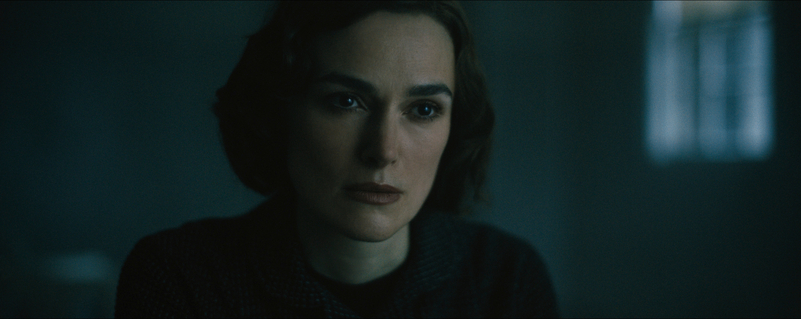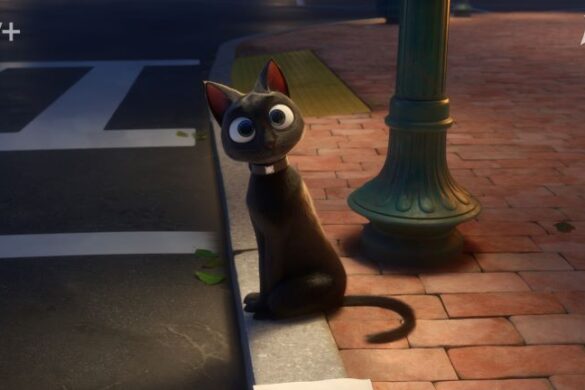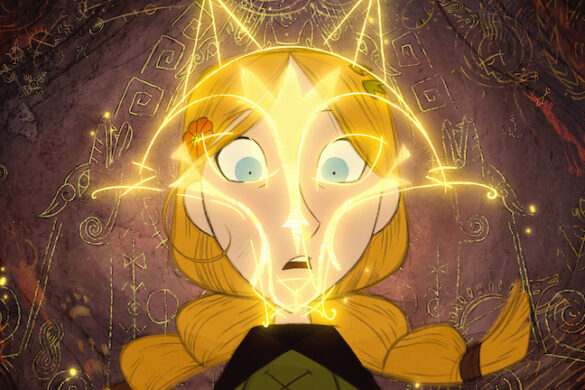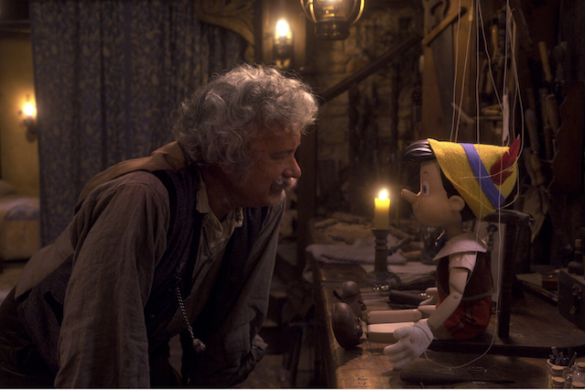“The Boston Strangler,” streaming on Hulu now, tells the story of two investigative reporters, Loretta McLaughlin (Keira Knightley) and Jean Cole (Carrie Coon), and how they were the first to connect a series of grizzly murders that took place during the 1960s. While the two faced rampant sexism of that era, they bravely pursued the story at significant personal risk, putting their own lives on the line in their quest to uncover the truth.
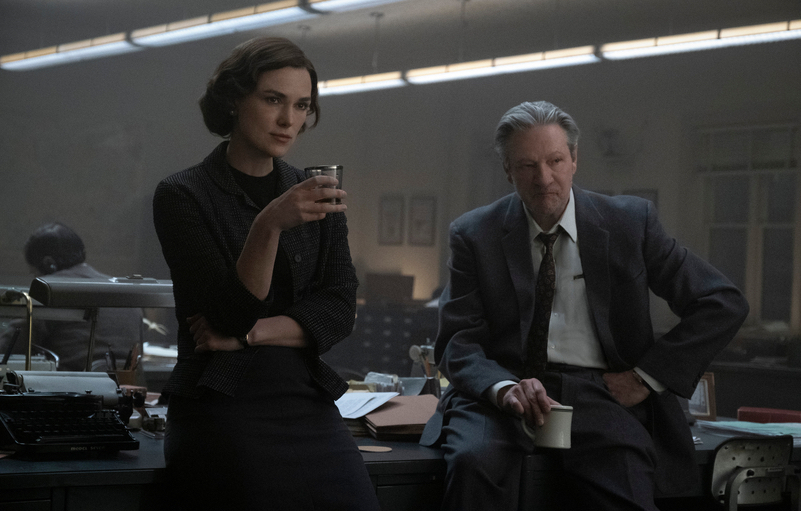
ThatsItLA joined their fellow journalists to talk to “The Boston Strangler” cast, writer and director Matt Riskin about their knowledge of the real-life killers, the real-life investigative reports who broke the case, and Boston accents.
Bostonian Riskin wasn’t familiar with the murders at first. However, upon reading about them, he “discovered this incredibly layered murder mystery that was full of twists and turns.” Among the things that he discovered was that Loretta McLaughlin and Jean Cole were the first to make the connections and that they were the first to coin “The Boston Strangler.”
Knightley was the same when it came to her knowledge of the killer. However, that wasn’t what drew her to the film. “I just thought it was a really interesting way of telling the story of a serial killer but through the point-of-view of these two female journalists,” she said. “And the fact that you’ve kinda got a case where most people didn’t know that it was two women who broke the story, that they’ve largely sort of been erased from the history of this case, I thought was really interesting.”
Coon was shocked at how, even though they were so integral to the investigation and forced the police to share their evidence, they never received their credits until now. “Their stories of how they became journalists, as individuals, they were very compelling, very moving stories. Certainly echoed the lives of the women in my world who grew up in the Midwest,” she said. Seeing the limited opportunities at the time, the actor saw Jean’s fight as very compelling. She was really interested in revealing that those women had been erased from the story. And, of course, I knew Keira was involved as well, and I was really excited to get the opportunity to work with her.”
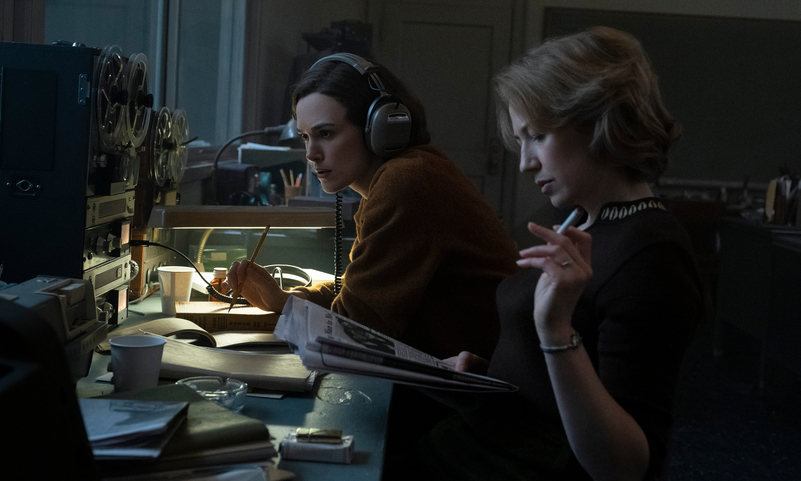
Because “The Boston Strangler” tells the stories of these murderers through the point of view of two female reporters, Riskin needed to collect as much information about them as he could. The problem was that it was very limiting. “I read Jean Cole’s obituary, and it mentioned that she had two daughters. And I looked them up, and one of them had a Facebook profile, and in the Facebook profile, she had one photograph. And in the photo, she had her arm around an old friend of mine,” he said. So he called that friend to ask her about Jean Cole, who connected him to the surviving family members.
“The more I got to know about these women and reporters, the more I grew to admire them and just felt incredibly compelled to try to tell their story,” Riskin said.
“This whole film is really a love song to female investigative journalists. And really highlights how important it is to have women in a position of power in storytelling because it was these two women that really went, ‘This is an important story. This is information that needs to be in the public in order to keep women of Boston safe.’ And I think, largely, it was a story that had been, at that point, ignored by the male establishment,” Knightley added. I don’t know that their male colleagues would have seen the importance of it. So I think it’s wonderful to be part of something that is really highlighting how important it is to have as many good female journalists as you possibly can for the safety of our communities.”
Knightley found Loretta’s tenacity inspiring. “I’ve been speaking to quite a few women who’ve seen the film, and this word keeps coming up, which I find fascinating, which is it was “cathartic” to watch it. And I think I probably experienced that when I read it, you know, all of the things that she came up against, whether it’s the male-dominated workplace or desperately trying to have a home life and a job and trying to raise children at the same point as trying to get justice for these women,” she said. I think it’s something that a lot of women today can relate to.”
Chris Cooper, who plays Loretta and Jean’s editor Jack MacLaine, agreed about the toxic work environment. “They were terribly dismissive, terribly dismissive of the women journalists,” he said. “One of the things that stand out, and I don’t know if it was totally intentional, but his attitude is he says to Loretta, ‘These murders, these three murders, these are nobodies. These are nobodies.’ Loretta comes back and says, ‘These are the people who read your paper. The working class,’ And I think that was kind of a little wake-up call for Jack. It was just a quick little setup, but I think that made an impression on him.”
At the time, the Boston PD also seemed dismissive about these murders and minimized Loretta and Jean’s groundbreaking investigative reporting. “I think the character is pissed off that the police department isn’t dealing with sort of more modern techniques of forensic psychology and that they’re not interested, seemingly, in connecting these murders,” Alessandro Nivola, who plays Detective Jim Conley, said. “He does what’s kind of a desperate move in reaching out to her or, you know, agreeing to talk to her,” a potentially dangerous move considering talking to the press is viewed as an act of betrayal.
Of course, no one can talk about Boston without talking about that notorious accent. But many would be surprised to hear about how the accent is limited. And that’s how Riskin and a few other cast members wanted it to be. “I just wanna preface this by saying that having grown up in Boston and not having a Boston accent and knowing a million people in Boston who do not speak with a thick Boston accent, it was important to me to not kind of go down that road if it felt unnecessary,” Nivola said. “I didn’t want that to get in the way of the story we were telling.”
“Everybody wants to try it, but Matt took away that pleasure and we respect why,” Coon said.
“We were like, ‘please let us try. Please let us try.’ And he’s like, no way. ‘You’re not from Boston. You’re not doing it,’” Knightley said.
“Loretta’s parents came over from Ireland, so for her, she grew up in a house that didn’t have Boston accents. They were just trying to assimilate,” Riskin on justifying prohibiting the use of Boston accents from actors who weren’t from Boston.
“But also education. I’m from Boston, and I can’t really think of anybody I know who had gone to the colleges that Loretta went to,” Nivola added. “I mean, even if you had an accent before that at that time, you were trying to sort of get rid of it if you were in that kind of intellectual environment or whatever the academic environment.”
“Keira, I have to say, arithmetically, it’s written. It has a very working Boston feeling in the writing because Matt is authentically from there, and you could feel that. Which is what made it hard to resist, Matt,” Coon added.
“Well, I mean, Matt did a smart thing, which was just to also introduce a class element to the movie by separating out who was and wasn’t speaking, with a kind of southeast sound or whatever,” Cooper chimed. “And I mean, obviously, you’ll be hard-pressed to find anyone working in the police department who doesn’t sound like that.”
Riskin had another reason why he wanted to shoot on-location in Boston. It was to bring that local presence authentically into the movie. “Yeah, I think one of the reasons I wanted to film the movie in Boston was to be able to bring in a lot of the local talent,” he said. “There’s an extraordinary theater world and scene in Boston and just a very deep pool of talent of local actors. So it’s great to be able to bring them in and allow some people to speak with their, you know, Boston accents. And I would just add to that, in this case, it’s not as much about class as it is just about as a generational thing.”
“That may be changing now. I mean, definitely in other parts of the world, like in England, it used to be that if you went to sort of Oxford or Cambridge, you just like came out of there sounding like you had a kind of posh English accent, even if you were from like the working class northern town,” Nivola continued. “Whereas now, like people from the North, go through their three years of college there and come out sounding proudly the same as they had from before they went in. But at this time, certainly, like people with university educations and everything kind of shed that if they had it.”
“The Boston Strangler” is streaming now on Hulu.
“The Boston Strangler” Photos by Claire Folger. © 2023 20th Century Studios. All Rights Reserved.

